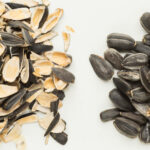
Spinach (Spinacia oleracea), native to central Asia, is one of the most versatile leafy green vegetables. Rich in vitamins and antioxidants, spinach protects you from chronic diseases and promotes brain, heart, and eye health.
You can enjoy spinach in various forms: cooked, fresh, frozen, or raw. Add it to smoothies, salads, side dishes, stir-fries, or even baked treats like brownies. Here are six health benefits of incorporating spinach into your diet:
Helps Manage Blood Pressure
Spinach contains nitrates, naturally occurring chemicals that open up blood vessels, improving blood flow and easing stress on your heart. A 2016 study involving seven women and eleven men found that consuming nitrate-rich drinks, including a spinach beverage, significantly increased blood nitrate levels. The spinach drink also lowered diastolic blood pressure (the bottom number in a blood pressure reading) and kept it low for five hours after consumption.
Helps Protect Against Diseases
Compounds in spinach can reduce oxidative stress, an imbalance between antioxidants and free radicals that damage cells. This stress increases the risk of chronic diseases like cancer, heart disease, and type 2 diabetes. By positively influencing gene expression related to inflammation and metabolism, eating spinach may protect against these conditions.
Is a Source of Antioxidants
Spinach is rich in antioxidants such as kaempferol, quercetin, myricetin, and isorhamnetin, all flavonoids that help reduce inflammation and protect against diseases like cancer, heart disease, and inflammatory conditions.
Is Full of Nutrients
Despite being low in calories, spinach is nutrient-dense. A three-cup serving provides over 300% of the daily value (DV) for vitamin K, over 160% for vitamin A, and 40% for vitamin C. Vitamin K and A support bone health, while vitamin C aids in wound healing. Spinach also provides 45% of the DV for folate, along with iron, magnesium, potassium, calcium, and small amounts of other B vitamins

May Support Eye Health
Lutein, an antioxidant found in spinach, may reduce the risk of age-related macular degeneration (AMD), a leading cause of vision loss in people over 55. Lutein-rich spinach increases macular pigment optical density (MPOD), which acts like internal sunglasses to protect your eyes.
Might Lower the Risk of Cognitive Decline
The anti-inflammatory properties of spinach may protect against age-related cognitive decline. A 2015 study tracking over 900 adults aged 58–98 for about five years found that those who ate one to two servings of leafy green vegetables daily had cognitive abilities comparable to people 7.5 years younger.
Nutrition of Spinach
Spinach is low in calories, with about 91% of its mass being water. A one-cup portion of raw spinach contains:
- Calories: 6.9
- Fat: 0.117 grams
- Sodium: 23.7 milligrams
- Carbohydrates: 1.09 grams
- Fiber: 0.66 grams
- Added sugars: 0 grams
- Protein: 0.858 grams
Risks of Spinach
To maximize spinach’s health benefits, vary your consumption methods—some raw, some cooked—but avoid overcooking to preserve nutrients. For example, raw spinach retains more lutein, while microwaving preserves vitamin K. Blanching reduces vitamin C content, whereas steaming preserves it. Cooking spinach can also reduce vitamin E levels but increase vitamin A content.
Tips for Consuming Spinach
Aim for one cup of spinach daily. Here are some ways to add more spinach to your diet:
- Blend spinach into smoothies, pancakes, hummus, soups, vegetable chili, and tacos.
- Add a handful of spinach as a base for meals.
- Sauté spinach in extra virgin olive oil (EVOO) with bell peppers and crushed red pepper.
- Steam and toss with olive tapenade or dairy-free pesto.
- Toss spinach with a vinaigrette made from EVOO, balsamic vinegar, Dijon mustard, and dried Italian herbs.
- Combine spinach in a smoothie with healthy fats like avocado or almond butter
FAQS
A Quick review
Spinach is a nutrient-dense leafy green that offers numerous health benefits. It helps manage blood pressure, protects against chronic diseases, and supports eye health and cognitive function. Rich in vitamins and antioxidants, spinach is a versatile addition to any diet. Whether consumed raw, cooked, or blended into smoothies, spinach is a powerhouse of essential nutrients that contribute to overall well-being.











